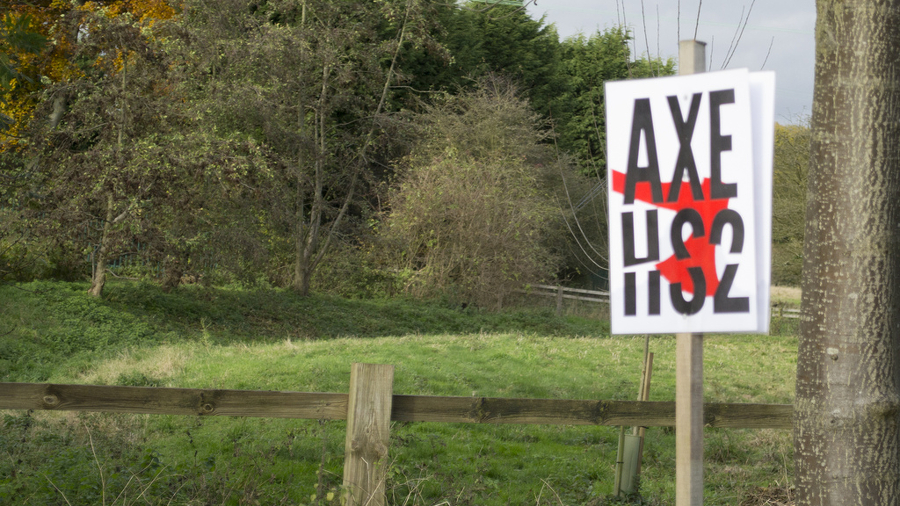Does the UK need high-speed rail or high-speed internet?
Broadband vs HS2

To address the key question above; both, is probably the rational answer. But when the volatile cocktail of public opinion, billions of pounds, experts and politicians are all slowly stirred in a big austerity cauldron, rationale evaporates into the extractor fan.
The potential economic benefits of high-speed rail and high-speed internet are both well established. A report by KPMG last year concluded that HS2 could deliver an annual £15 billion boost to the economy, with cities and regions outside of London benefitting the most.
The report, paid for by HS2, was subsequently criticised for assuming that some regions in the country would receive a huge economic boost simply because of better transport links, and ignored the issues around the lack of skilled labour and developable land.
The economic benefit of HS2 in cold hard cash has changed a number of times over the years, ranging from KPMG's £15 billion, to a slightly more ambitious £20.1 billion prediction from the Department for Transport in 2012. The current figure stands at £13.3 billion in "wider economic benefits".
Supporting a new economy
The potential economic benefits of a full FTTH roll-out, too, are impressive. The UK is the 'most internet based major economy', with internet related trade contributing 8.3% to the UK economy, according to a 2012 report from the Boston Consulting Group. It predicts that internet related trade will continue to grow, possibly rising to 11% in the next four years, and reach a total value of £221 billion by 2016.
A report commissioned by the Department for Culture Media and Sport last year estimated that a county-wide fibre roll out would add £17 billion to the UK economy by 2024. But, most notably: for every £1 invested, a fibre optic rollout would offer a £20 return in economic impact.
The numbers aren't that far apart, but the economic benefits of a fibre rollout are more immediate. Laying fibre optic cable is both less costly and significantly faster to do than building a brand new rail network. But why do they have to be mutually exclusive? If digging is required to lay tracks down, then surely fibre optic cable can be laid too? Both are important, both are an investment, so both should be top priority, right?
Are you a pro? Subscribe to our newsletter
Sign up to the TechRadar Pro newsletter to get all the top news, opinion, features and guidance your business needs to succeed!
Professor Peter Cochrane, the former chief technology officer at BT, certainly thinks that two angry birds could've been killed with one high-speed stone.
"Here is the tragedy: HS2 should never been 'sold' as a train project. The 'big dig' is the biggest cost and the grand ditch could have housed a train line and a water main moving water from where it falls to where it is needed.

"Politicians know the price of everything and the value of nothing"
"The same it true of energy. It should have been a disguiser of power lines, an optical fibre trunk is obvious as is a gas main and an oil/fuel distribution system. Why didn't any of this emerge? Our parliament runs strictly to 17th Century protocols and processes and cannot deal with such complexity. For HS2, the real opportunity was stuffed by tradition.
"Given all of this; money spent of 'real broadband' that will support a future of Cloud Computing - and bandwidths around 1Gbit/s both ways - would have been a bargain. Unfortunately, the reality is that we won't get either. The treasury/politicians know the price of everything and the value of nothing".
We know from experience that the government has, at best, a sketchy record when it comes to anything with a circuit board. And it's entirely likely that the government missed a trick with how HS2 construction could've been multi-purpose and how that was presented to the public.
But despite Professor Cochrane's comments, former transport minister Simon Burns hinted that fibre optic cables could be run along HS2 track in January last year.
He said: "Construction of HS2 gives us the perfect opportunity to explore how we can make it easier for even more people to benefit from ultra-fast broadband — and potentially deliver improvements to the provision of other utility services, including water and electricity."
When I asked the Department for Transport if this was true and whether or not it saw HS2 as more of a priority than fibre optic rollout, it responded with: "HS2 and broadband are both important priorities and one isn't being done in the expense of the other.
"We are investing over £1bn in broadband and mobile infrastructure across the UK, to grow our economy and make Britain more competitive in the global race. The government is on track to deliver superfast broadband to 95% of the UK by 2017.
- 1
- 2
Current page: Billions of pounds of investment at stake
Next Page Has the government got its priorities right?